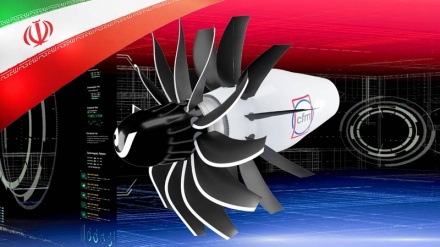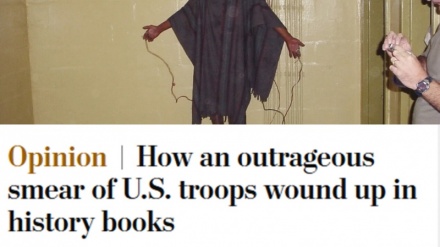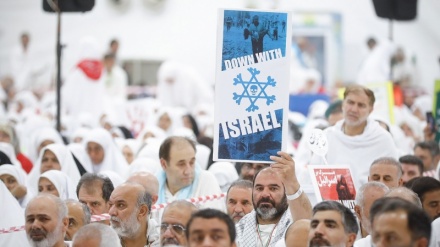American magazine Hill wishing military coup in Iran after president's helicopter crash
The American website, The Hill, has published an article by Shahrzad Ahmadi trying to depict Iran's situation critical after the presidential helicopter crash.
This article has been published under the heading, "Iran's elections could give rise to another military coup". The writer, Shahrzad Ahmadi, associate professor of history in Saint Thomas University, is a specialist in the affairs of Iran and Iraq. She is originally from Iran and gives services to the US government. In this report of Pars Today, we are going to have a brief look at the allegations of the writer and the American magazine, The Hill.
This article begins on the basis of a queer assumption and continues to the end with the same assumption: "The stability of the Islamic Republic is definitely questioned." The writer thinks that if she uses the word, "definitely", the above-mentioned pre-assumption will be proved, whereas, every evidence shows that, in Iran, power transfer from the previous government to the new one is done according to the constitution which has been ratified several decades ago.
In another part of this paper, it is said that unexpected changes have occurred in the Islamic Republic of Iran as currently figures supporting the system are running for president. The writer claims that unexpected changes have occurred in Iran while she refers to the rivalry of pro-Islamic Republic figures in the presidential election!
Perhaps, the writer has forgotten that the rivals in every political system are the persons who have accepted the political structure of that country and are competing for a post within the framework of its constitution. Although this rivalry is accompanied with much tension in many countries, it is never indicative of critical conditions in those countries.
Elsewhere in the paper, Shahrzad Ahmadi calls the figures whom have been assassinated by the US and Zionist regime as casualties of the Islamic Republic and doesn't point to the US' and Israel's being the perpetrator or accomplice in all those crimes. This conduct towards a legitimate political system clearly shows the writer's bias and spite.
This biased paper refers to the names of the IRGC Qods Force Commander, Lieutenant General Qasem Soleimani, Iranian military advisors in Syria, Brigadier Generals Mohammad Reza Zahedi and Mohammad Hadi Haji Rahimi, and also the eight president of the Islamic Republic of Iran, Seyyed Ebrahim Raeisi. Then it claims that there is only one key member whom everyone may preserve, namely, the leader of Iran, Seyyed Ali Khamenei.
The writer should be asked, "How can everyone preserve the leader while he is the only remaining key member?" One can also ask this question, "How come these were the only key members among Iran's military commanders, and the rest of the military commanders are not the key members in the Iranian political structure?"
The writer also claims with a childish prediction that after the current leader of the Islamic Republic, his son, Seyyed Mojtaba, will be the next leader. This is an impossible claim showing the utter ignorance of the writer towards the trend of appointment of leadership in Iran and the lack of political status of the current leader's family.
Towards the end of this paper, the writer compares the funeral of Seyyed Ebrahim Raeisi with that of General Qasem Soleimani 5 years ago, and concludes that the social asset of the Islamic Republic has decreased. This is while, in some cities like Mashhad, Ayatollah Raeisi's funeral was more crowded than that of General Soleimani.
Finally, this article is more based on personal hearings, wishful thinking and illusions of a hardline anti-Iran American current which is, per chance, devoid of proper understanding of Iran's events. It is an article which is based on no fact, document or evidence and is merely a tool to reveal the writer's grudges against the Islamic Republic of Iran's system.
It should be noted that the 1953 military coup in Iran, known as Mordad 28 coup, was indeed the US-British plot to throw the democratically elected Prime Minister, Mohammad Mosaddeq through their mercenaries and spies in the army in a bid to preserve the despotic regime of Mohammad Reza Pahlavi.
Key phrases: Election in Iran, US-British coup in Iran, Who was Ebrahim Raeisi? Iranian helicopter crash, Iran and US
RM/UR



